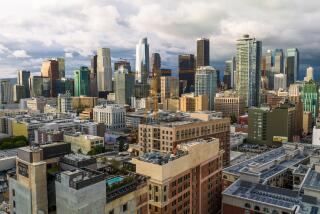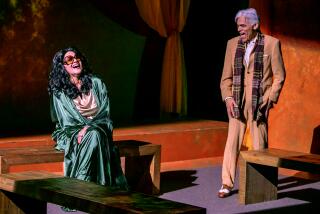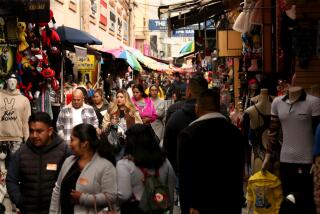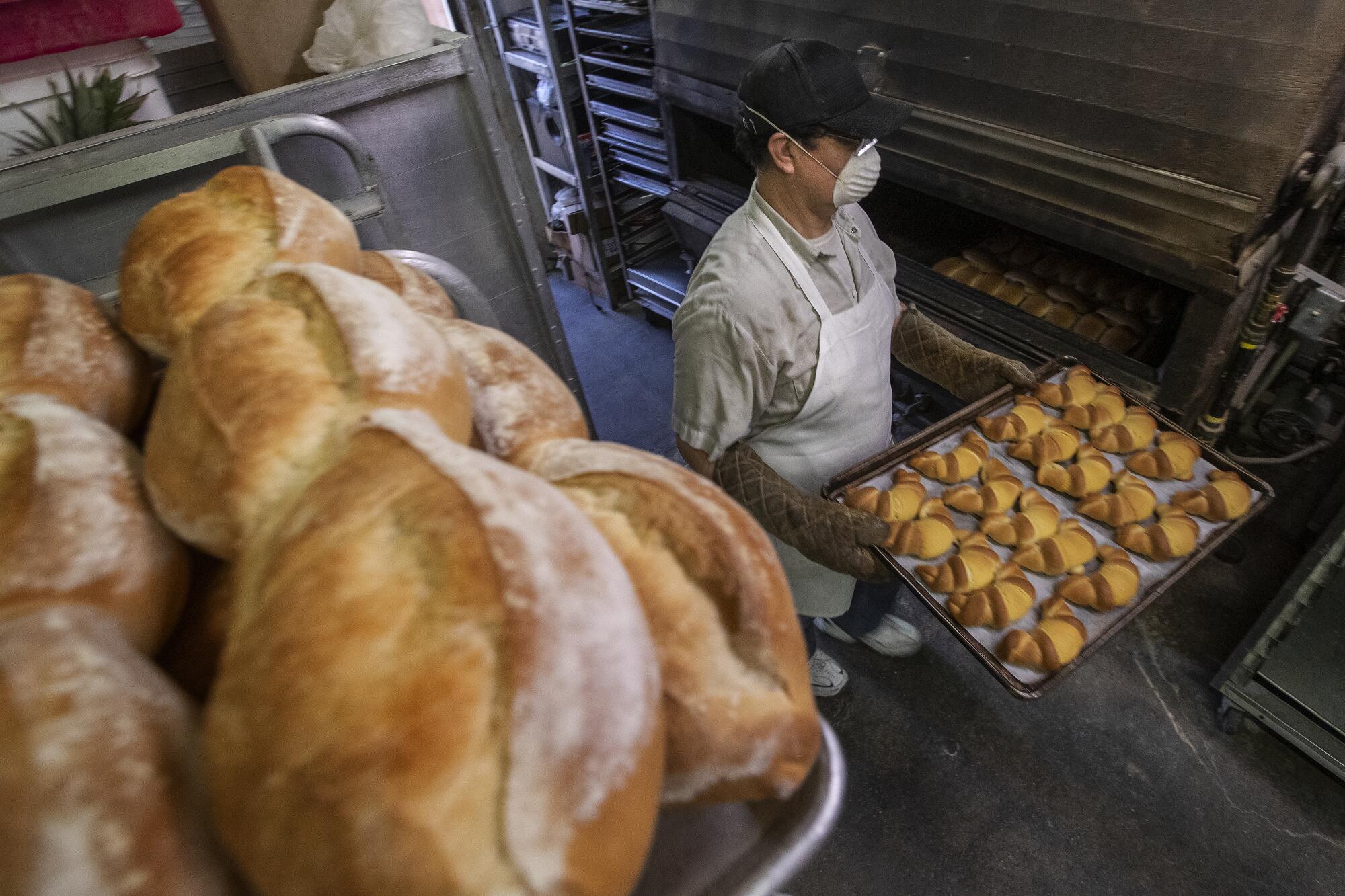
- Share via
Miguel Dominguez and his son, Jesse, filled a few trays with pig-shaped puerquitos and football-shaped bolillos, then stuck them in the oven.
Back when business was good, they would keep going until stacks and stacks of trays were full of the Mexican breads. On this recent morning, they didn’t expect to sell much. The “ding dong” announcing a customer’s arrival came only a handful of times in an hour.
Dominguez thought that by now, with the COVID-19 pandemic easing locally, there would be more people coming into Marisol Bakery on Whittier Boulevard in East Los Angeles.
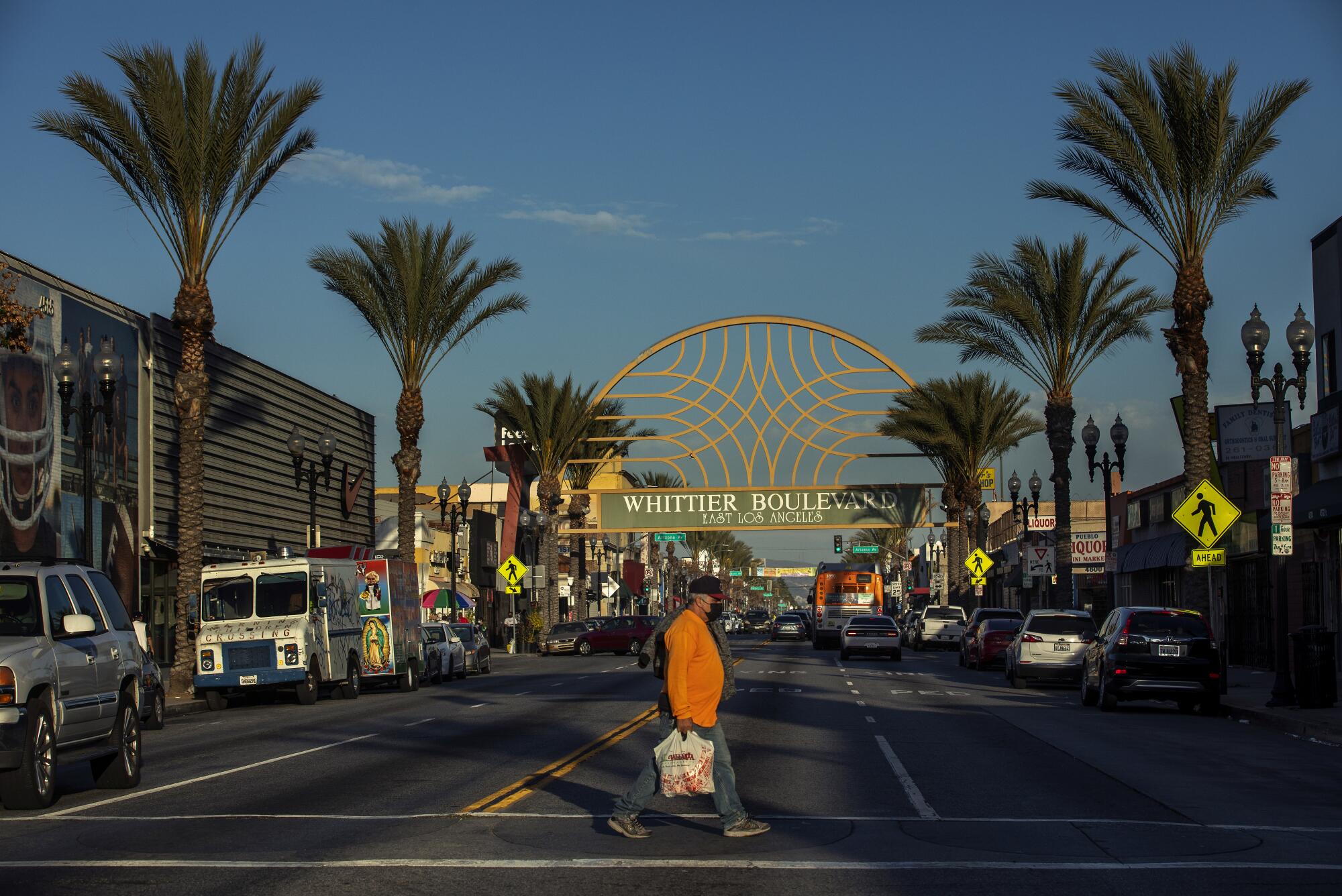
When he was vaccinated in early March, he imagined others would feel the same sense of relief and desire to get back to normal. But he still steps outside to a quiet street.
The nearby tamale and burger restaurants are gone. On the strip that was once a hub of Latino shopping life, there are more storefronts shuttered by iron gates than open ones inviting customers.
Dominguez is one emergency away from closing.
“I thought people might want to go out and spend their money,” the 56-year-old said. “But no. Nothing has changed. It’s a sad situation.”
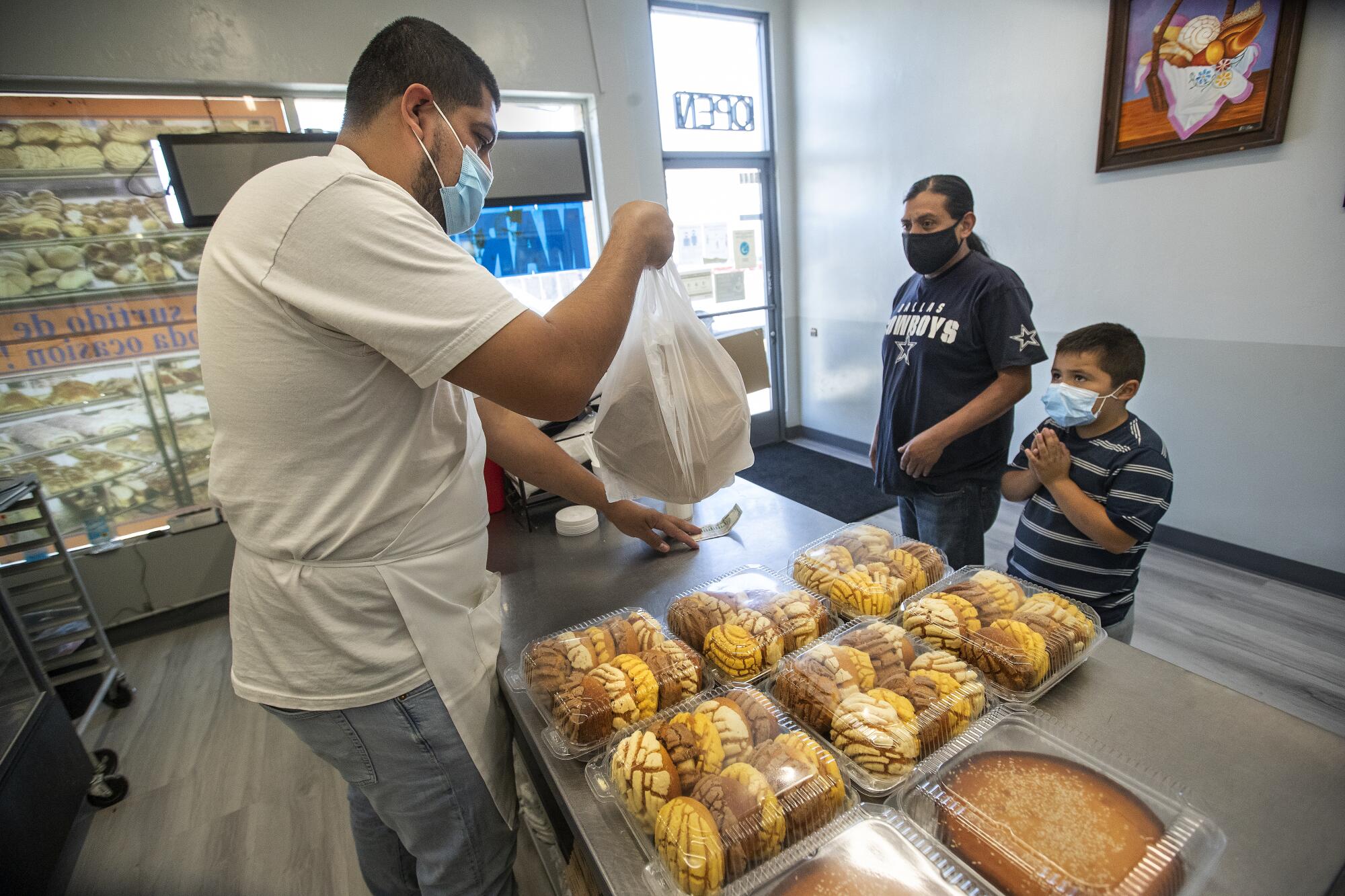
California’s economy is rapidly reopening a year after the pandemic began, thanks to huge drops in COVID-19 cases and the increasing spread of vaccines.
But this rebirth is playing out more cautiously in places like East Los Angeles, an epicenter of the coronavirus crisis. Like other overcrowded, immigrant communities filled with essential workers, the Eastside was devastated by COVID-19 in ways more affluent parts of Los Angeles could barely imagine.
While some beach districts are seeing surges in business, the recovery in places like Whittier Boulevard is going more slowly and deliberately. Here, people are shellshocked by illness, death and job loss.
Some are scared to venture out. Some are still unemployed and have little money to spend. Others have changed their shopping habits during the pandemic, opting for one-stop shopping at big box outlets, accelerating a trend that had already doomed many of the boulevard’s mom-and-pop stores.
For decades, Whittier Boulevard has been a hub of Latino life. Now the 14-mile thoroughfare is facing challenges from the pandemic and gentrification.
Even with California on schedule to fully reopen in June, business owners like Dominguez fear their customers will not return. The pandemic may turn out to be the nail in the coffin for the storied boulevard that was an epicenter of the Chicano rights movement, a place to see a movie and to buy shoes, furniture or a First Communion dress.
The anxiety along Whittier Boulevard at this moment of optimism is yet another example of the deep inequities brought on by the pandemic.
A Times data analysis showed that while East L.A., South L.A. and other poorer areas were battered by the winter surge, more affluent areas — even dense ones like West Hollywood and Marina del Rey — felt far less impact. The average COVID-19 death rate among Latinos in L.A. County peaked in mid-January at a daily rate of 48 deaths per 100,000 Latino residents, three times worse than the rate for white residents.
This made reopening a tough proposition, not just returning to the once-bustling shopping districts but whether to immediately send children back to in-person learning.
Some Whittier Boulevard merchants have weathered the pandemic by relying on loyal clientele who still stop in or make appointments online. Others, like Dominguez, need foot traffic to survive.
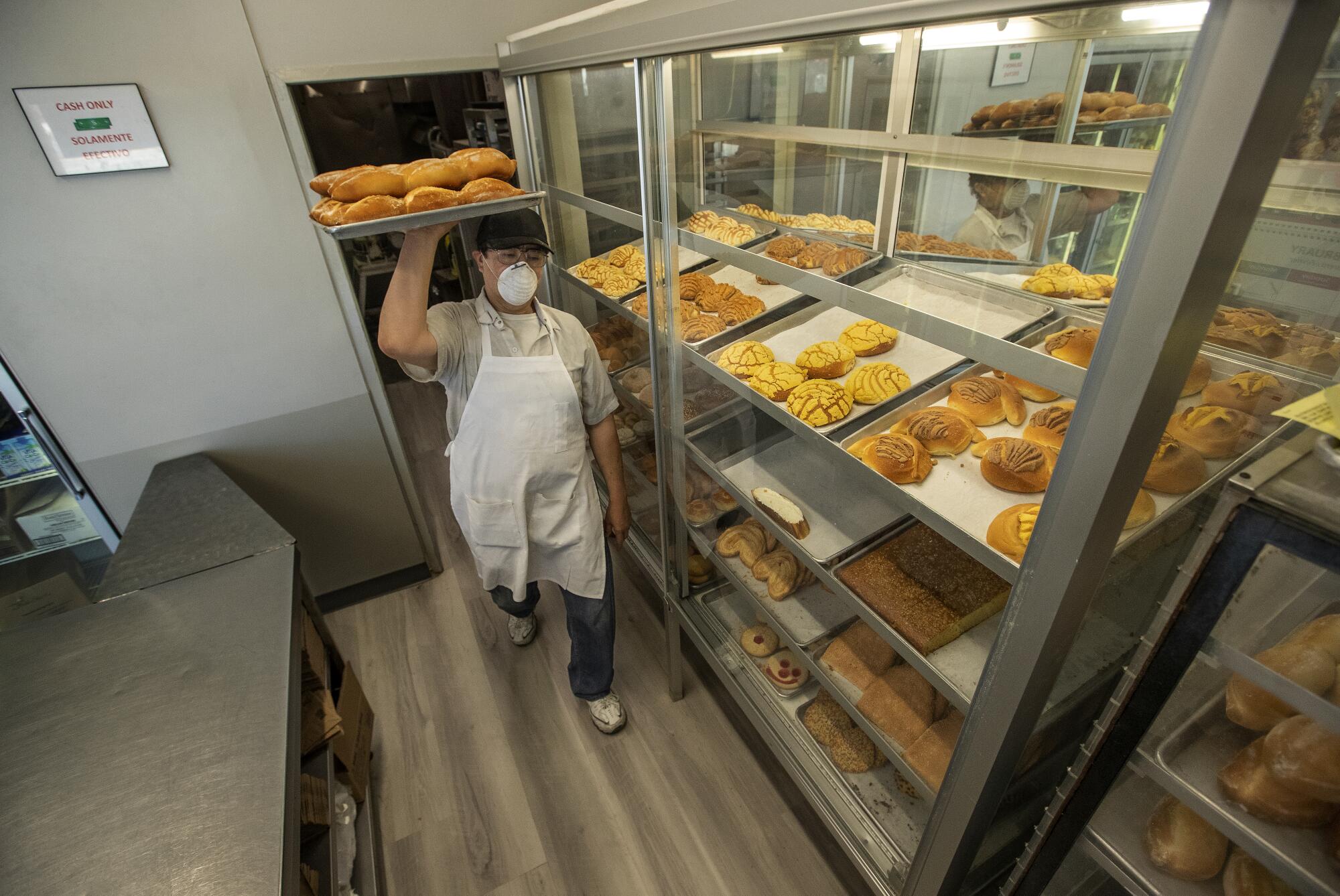
Dominguez used to deliver bread door to door in Latino neighborhoods in Watts and East L.A. With his wife and son, he also sold bread at swap meets to long lines of dozens of people, adding up to 40% of total sales. They were thinking of hiring a few employees.
But the pandemic brought restrictions on swap meet food sales.
Dominguez’s wife, who had been sick with a rare disease that causes protein buildup in vital organs, died last summer. He had to take a break from the bakery, on a section of Whittier Boulevard west of Garfield Avenue, and has had a hard time running the business without her.
Dominguez worries that pandemic shopping habits will become permanent.
“People who used to buy from me would tell me that it’s cheaper there, so they stopped coming,” he said. “We can’t fight against those monsters.”
Maria Lopez, 57, of East Los Angeles stood outside Marisol Bakery waiting for someone inside to finish ordering. She is a loyal customer of 12 years who visits twice a week for bolillos and conchas, a Mexican sweet bread.
But she doesn’t stop by as often as she did earlier in the pandemic, when she bought bread for family members so they wouldn’t have to leave home. Now that their schedules are beginning to fill up again, she doesn’t buy for them as much, she said — and they may end up going somewhere other than Marisol.
“People are still not confident, but I think people will gain confidence to go out and things will get better,” she said.
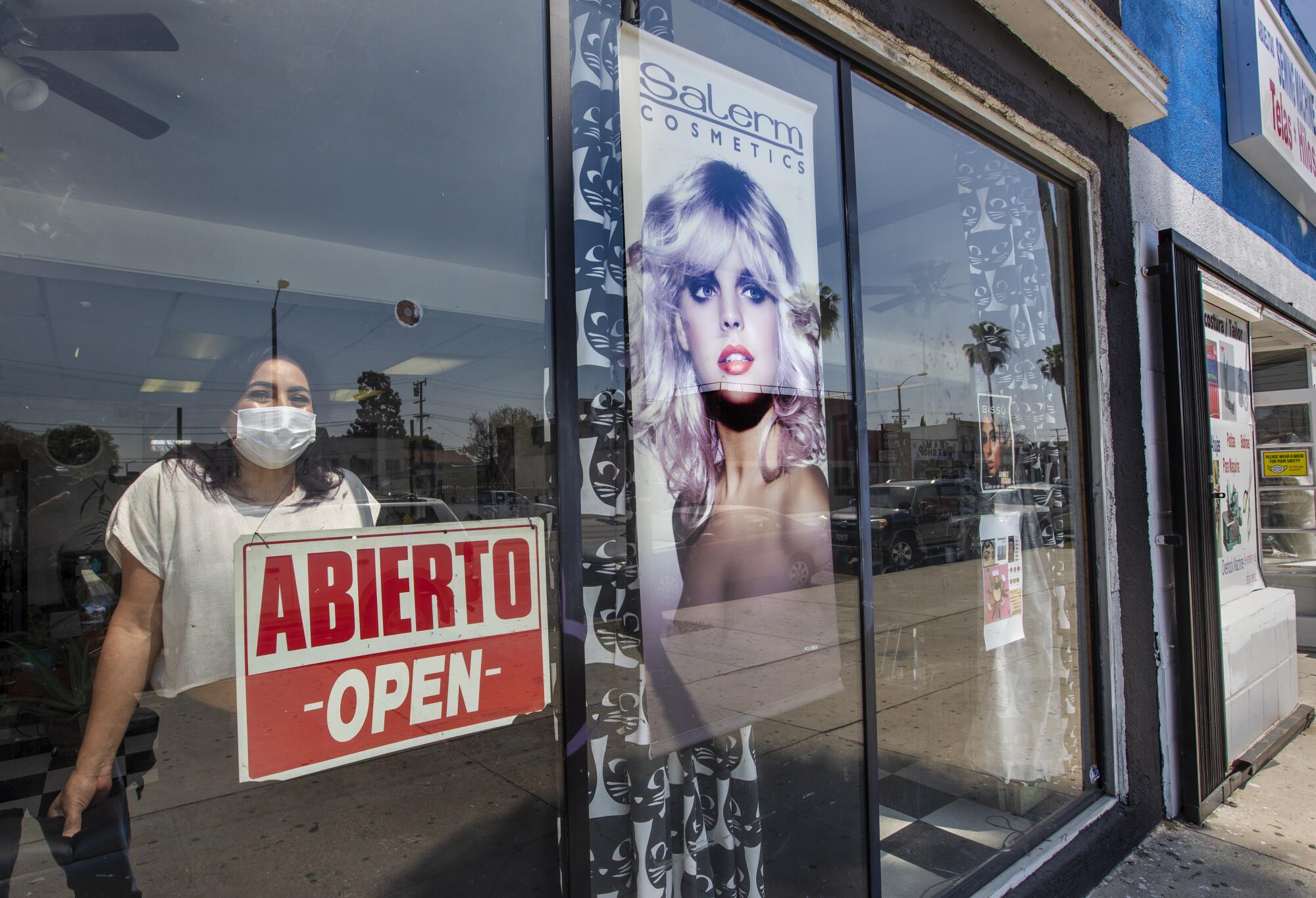
A few blocks away, Cecilia Rodriguez, owner of Cecy’s Eyebrow Threading & Salon, said she had noticed Whittier Boulevard growing quiet even before the pandemic. But her business has done fine because it relies on appointments. During the seven months her salon was closed, she saw clients at home.
Since she returned to Whittier Boulevard, she has been booked all day. Once the economy fully reopens, she’ll likely stick to appointments only, no walk-ins. Some local residents are still scared to leave the house, and she also feels safer working with clients she already knows, she said.
Rodriguez was expecting an uptick in business after the last stimulus checks were distributed, but that didn’t happen, she said — perhaps because people spent the money on basic needs.
“People don’t have money for more than that,” said Rodriguez, 42, a Montebello resident.
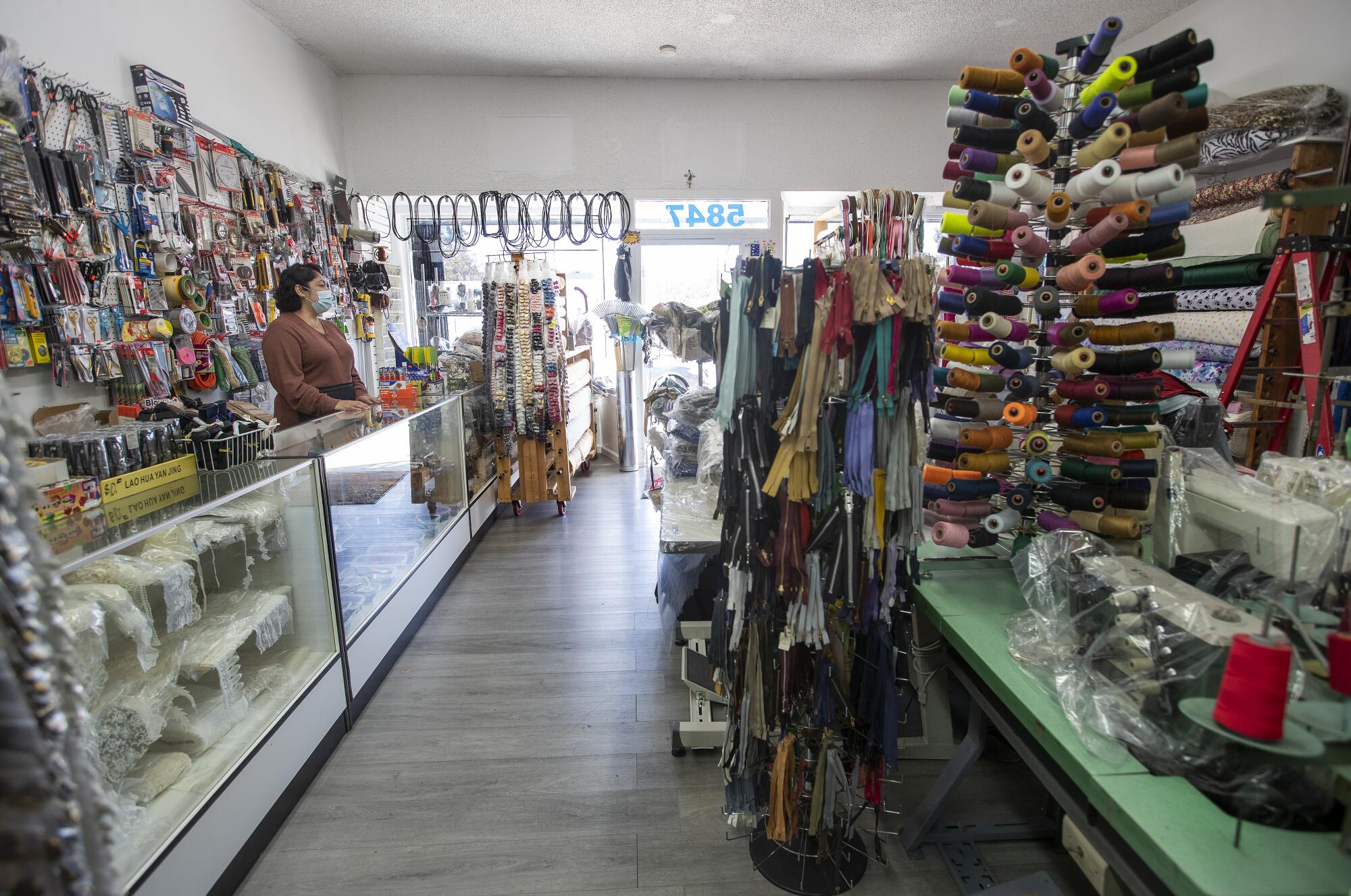
Next door, Isabel Tellez and her son unlocked the iron gates over the Abuelitas Sewing Machine & Repair shop and pulled out a few rolls of fabric to display outside.
Back in the store, they sat behind the counter and waited. They would be lucky to see two or three pedestrians walk by in one hour, said Tellez, 49, who lives in East L.A. Some days, they’ll have a few sales. Other days, no one will come inside.
The store opened on Whittier Boulevard a few months ago. Tellez and her family had to close a much larger location in Commerce after they all fell ill with COVID-19 and couldn’t keep up with the rent.
Tellez has taken over for her mother, the owner, who is still not feeling well enough to return to work full-time, a year after contracting the virus.
Tellez herself doesn’t feel 100% well. There’s the persistent coughing. But the worst part is the anxiety, which creeps up on her when she enters spaces that are even a little bit crowded, like the grocery store.
She feels a mixture of eagerness and fear at seeing more customers. While she needs the business, she feels nervous when there are even three people in the shop. She shoos her son, who has asthma, to the back room.
Many of her clients and neighbors are older, in the country without proper documentation and don’t have access to government aid, she said.
“Hispanics are very hardworking people. We don’t like to ask for handouts,” she said. “But we need help.”
On Whittier Boulevard near Atlantic Boulevard, Olvera Music is beginning to see some signs of change.
Owner Jose Antonio Olvera said he lost up to 30% of his sales last year. Many regular customers were professional musicians who weren’t performing, so they weren’t buying as many instruments and other equipment.
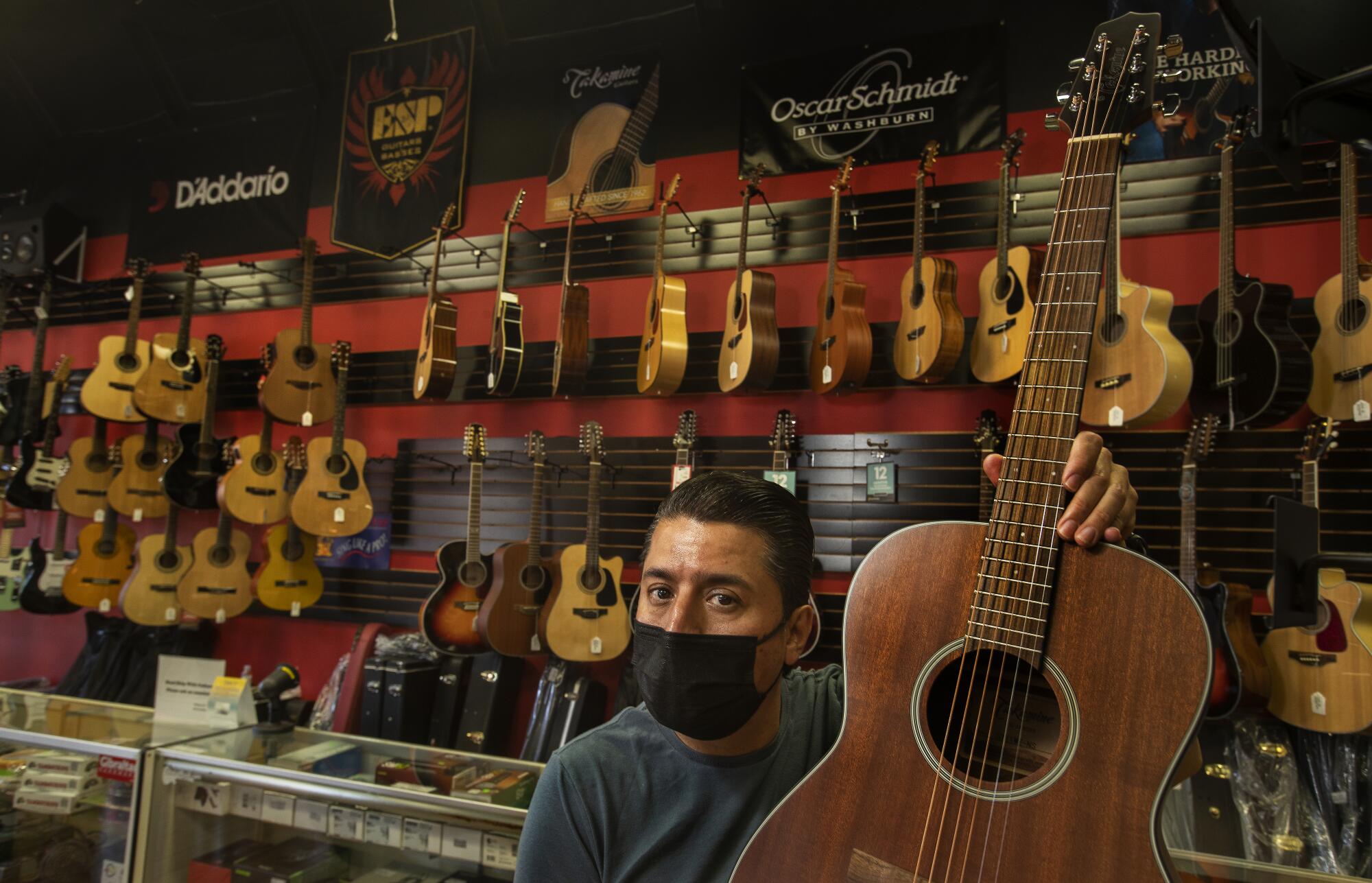
However, pandemic boredom, which led many to pick up new hobbies, helped a little.
Olvera sold inexpensive guitars for new learners and repaired old instruments, perhaps given away by family members. Musicians practicing at home still needed to replace guitar strings and reeds.
“Guitars — those $100 basic guitars — are keeping us alive,” he said.
Unlike other business owners, Olvera saw more customers when people got their stimulus checks. In February, a few professional musicians returned, likely in preparation for upcoming gigs.
While shoppers may have gravitated to chain stores for groceries during the pandemic, a small music store offered shorter lines and quicker ins and outs than a large retailer like Guitar Center, Olvera said.
“They grab what they need in five or 10 minutes,” he said. “In a way, it has helped, being a small store.”
Even though his store is doing better, Olvera worries about the long-term impact of the pandemic on the Latino community. Some of his customers are immigrants without papers who play music as a side job to make ends meet. Many people are still out of work, or back at work but grappling with a year of unpaid bills.
“If the economy isn’t better, reopenings aren’t going to make a difference,” he said.
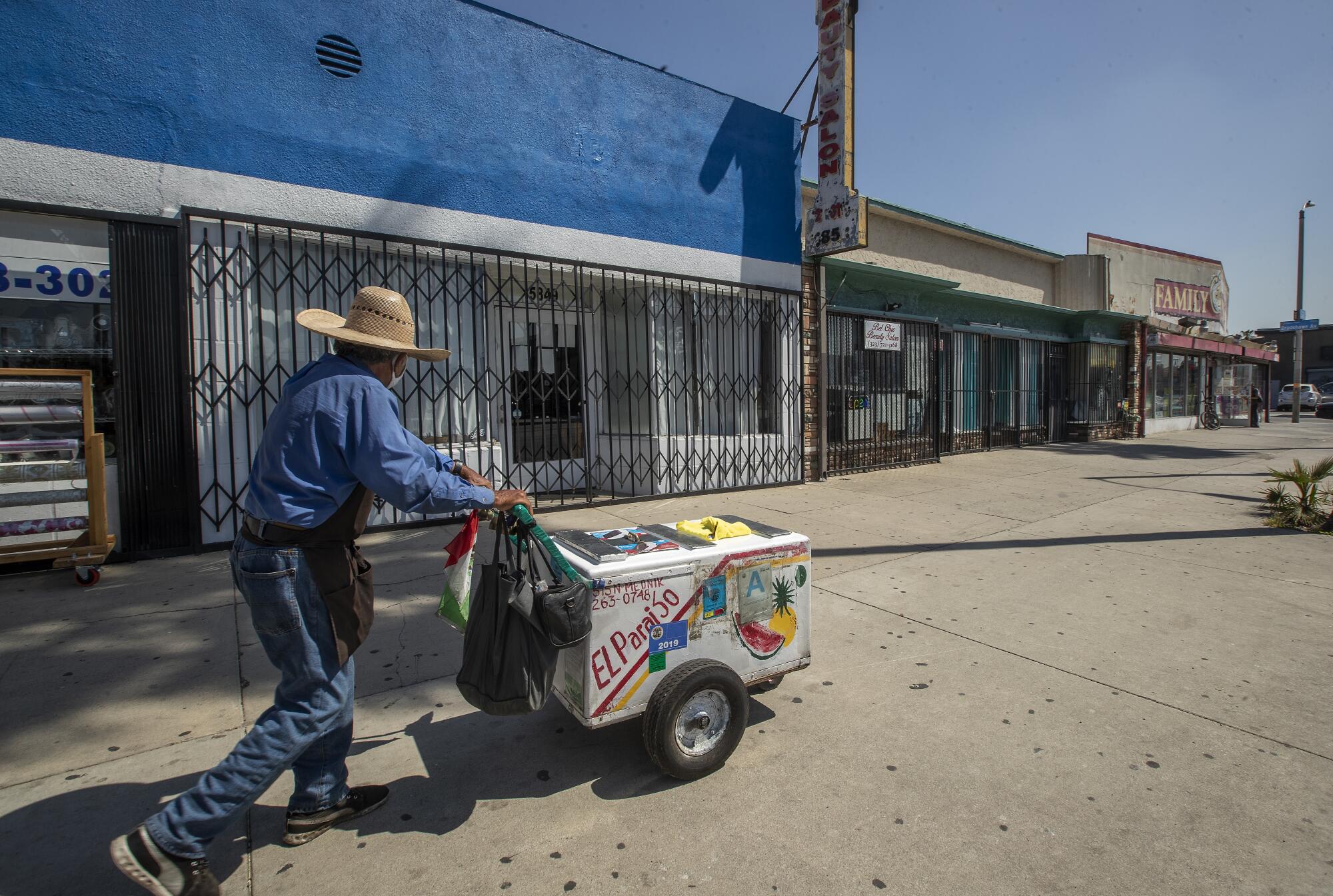
More to Read
Sign up for Essential California
The most important California stories and recommendations in your inbox every morning.
You may occasionally receive promotional content from the Los Angeles Times.

